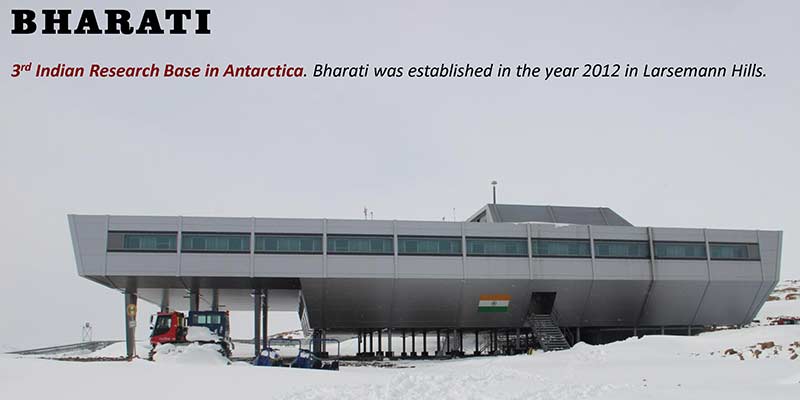RRB (Railway Recruitment Board)

About RRB:
In 1945, the Services Commissions were set up at Bombay, Calcutta, Madras and Lucknow. In 1948, the Indian Railway Enquiry Committee reviewed working of commissions. In 1949, due to financial constraints a ban was imposed on recruitments on Indian Railways thus numbers of commissions was reduced to one centrally located at Bombay. In 1953-54 when Economic conditions of Indian Railway improved, four service commission were again set up at Bombay, Madras, Allahabad and Calcutta. In 1956, the Estimates committee generally approved the method of recruitment by the constitution of the Railway Service Commissions. In 1983, to cater to the needs of areas which were being neglected due to locations of the existing commissions, seven more commissions were set up viz, at Ahmedabad, Ajmer, Bhopal, Bhuvneshwar, Chandigarh, Jammu and Srinagar with sitting at Leh and Trivendrum. In 1984 two more service commissions were set up at Malda and Gorakhpur. In January, 1985 Railway Service Commissions have been renamed as Railway Recruitment Board (RRB). At present 21 Railway Recruitment Boards are functioning.
RRB Exam Pattern:
In this section, a brief idea about the RRB Exam pattern for various exams is discussed. The Railway Recruitment Board Exam pattern is set by the board itself.
The RRB Exam pattern for various RRB exams is given below.
RRB NTPC Exam Pattern:
The RRB exam NTPC CBT – 1 Exam Pattern 2019 is as follows:
RRB Exam – NTPC CBT I Exam Pattern | ||
Sections | Maximum Marks | Total Duration |
General Awareness | 40 | 90 minutes |
Mathematics | 30 | |
General Intelligence and Reasoning | 30 | |
Total | 100 | |
The RRB NTPC CBT – 2 Exam Pattern 2019 is as follows:
RRB Exam Pattern – NTPC CBT II | ||
Sections | Maximum Marks | Total Duration |
General Awareness | 50 | 90 minutes |
Mathematics | 35 | |
General Intelligence and Reasoning | 35 | |
Total | 120 | |
RRB ALP Exam Pattern:
As the RRB ALP Exam details have not yet been published for the 2019-20 exam, aspirants can refer to the RRB ALP Exam pattern 2018-19 as a reference.
The RRB Exam Pattern for ALP 2018-19 is as follows:
RRB Exam – ALP Exam Pattern | ||
RRB ALP Exam | Maximum no.of Questions | Duration |
1st stage CBT | 75 | 60 min |
2nd stage CBT- PART A | 100 | 90 min |
2nd stage CBT- PART B | 75 | 60 min |
RRB JE Exam Pattern:
The RRB JE Exam pattern is given in brief below:
RRB Exam Pattern JE (CBT- I) | ||
Subjects | No of Questions | Marks for Each Section |
Stage – I | Stage – I | |
Mathematics | 30 | 30 |
General Intelligence & Reasoning | 25 | 25 |
General Awareness | 15 | 15 |
General Science | 30 | 30 |
Total | 100 | 100 |
Time in minutes | 90 | |
The exam pattern of CBT Stage – II is given in the table below:
RRB JE Exam Pattern (CBT- II) | ||
Subjects | No of Questions | Marks for Each Section |
Stage – I | Stage – I | |
General Awareness | 15 | 15 |
Physics & Chemistry | 15 | 15 |
Basics of Computers and Applications | 10 | 10 |
Basics of Environment and Pollution Control | 10 | 10 |
Technical Abilities | 100 | 100 |
Total | 150 | 100 |
Time in minutes | 120 | |
Candidates should regularly visit the official website of RRB for any changes related update on RRB JE exam.
RRB Group D Exam Pattern:
The selection process of RRB Group D exam comprises four stages excluding the RRB Group D Apply Online process and issuance of RRB Group D Admit Card.
The four stages of RRB Group D Exam pattern are:
- Computer-Based Examination is conducted for 90 minutes. A total of 100 questions are asked on four different sections (English, Maths,GK & GS) and there is a negative marking of ⅓ marks for each wrong attempt in the CBT.
- Physical Efficiency Test is qualifying in nature.
- Document Verification
- Medical Examination
RRB Exams Syllabus
The Syllabus for RRB exams gives the complete idea about the important topics covered for various exams conducted by the RRB.
RRB NTPC Syllabus:
The RRB NTPC syllabus has the following topics:
- General Awareness
- Mathematics
- General Intelligence and Reasoning.
The RRB Exam NTPC Syllabus is given below:
General Awareness | Mathematics | General Intelligence and Reasoning |
Number Systems | Analogies | National and International Current Events |
Decimals | Completion of Number and Alphabetical Series, | Games and Sports |
Fractions | Coding and Decoding | Art and Culture of India |
LCM and HCF | Mathematical Operations | Indian Literature |
Rations and Proportions | Similarities and Differences | Monuments and Places of India |
Percentage | Relationships | General and Life Science (Up to 10th Std) |
Mensuration | Analytical Reasoning | History of India and Freedom Struggle |
Profit and Loss | Syllogism | Physical, Social and Economic Geography of India and World |
Elementary Algebra | Jumbling | Indian Polity and Governance |
Geometry and Trigonometry | Statement – Courses of Action | UN and Other Important World Organisations |
RRB ALP Syllabus:
The RRB Exam ALP syllabus contains various topics related to different concepts.
The RRB ALP syllabus is given below:
RRB Exam ALP CBT 1 Syllabus:
Mathematics | General Intelligence and Reasoning | General Science | General awareness on current affairs |
Number system, BODMAS, Decimals, Fractions, LCM, HCF, Ratio and Proportion, Percentages, Mensuration, Time and Work; Time and Distance, Simple and Compound Interest, Profit and Loss, Algebra, | Analogies, Alphabetical and Number Series, Coding and Decoding, Mathematical operations, Relationships, Syllogism, Jumbling, | Physics, Chemistry and Life Sciences of the 10th standard level. | Science & Technology, Sports, Culture, Personalities, Economics, Politics |
RRB Exams ALP CBT 2 Syllabus:
Mathematics | General Intelligence and Reasoning | Basic Science & Engineering | General awareness on current affairs |
Number system, BODMAS, Decimals, Fractions, LCM, HCF, Ratio and Proportion, Percentages, Mensuration, Time and Work; Time and Distance, Simple and Compound Interest, Profit and Loss, Algebra. | Analogies, Alphabetical and Number Series, Coding and Decoding, Mathematical operations, Relationships, Syllogism, Jumbling. | Engineering Drawing (Projections, Views, Drawing Instruments, Lines, Geometric figures, Symbolic Representation), Units, Measurements, Mass Weight and Density, Work Power and Energy, Speed and Velocity, Heat and Temperature, Basic Electricity. | Science & Technology, Sports, Culture, Personalities, Economics, Politics. |
RRB JE Syllabus:
The RRB Exam JE syllabus is given below in brief:
CBT 1 RRB JE syllabus
Name of Subject | RRB JE Syllabus – CBT 1st Stage |
Mathematics | Number systems, BODMAS, Decimals, Fractions, LCM and HCF, Ratio and Proportion, Percentages, Mensuration, Time and Work, Time and Distance, Simple and Compound Interest, Profit and Loss, Algebra, geometry, Trigonometry, Elementary Statistics, Square Root, Age Calculations, Calendar and Clock, Pipes and Cistern. |
General Intelligence and Reasoning | Analogies, Alphabetical and Number Series, Coding and Decoding, Mathematical operations, Relationships, Syllogism, Jumbling, Venn Diagram, Data Interpretation and Sufficiency, Conclusions and Decision Making, Similarities and Differences, Analytical reasoning, Classification, Directions, Statement – Arguments and Assumptions |
General Awareness | Knowledge of Current affairs, Indian geography, culture and history of India including freedom struggle, Indian Polity and constitution, Indian Economy, Environmental issues concerning India and the World, Sports, General scientific and technological developments |
General Science | Chemistry, Physics and Life Sciences up to 10th Standard CBSE |
CBT 2 RRB JE syllabus
Name of Subject | RRB JE Syllabus – CBT 2nd Stage |
General Awareness | Knowledge of Current affairs, Indian geography, culture and history of India including freedom struggle, Indian Polity and constitution, Indian Economy, Environmental issues concerning India and the World, Sports, General scientific and technological developments |
Physics and Chemistry | Up to 10th Standard CBSE syllabus and relevant basics |
Basics of Computer and Applications | The architecture of Computers; input and Output devices; Storage devices, Networking, Operating System like Windows, Unix, Linux; MS Office; Various data representation; Internet and Email; Websites & Web Browsers; Computer Virus. |
Basics of Environment and Pollution Control | Basics of Environment; Adverse effects of environmental pollution and control strategies; Air, water and Noise pollution, their effect and control; Waste Management, Global warming; Acid rain; Ozone depletion. |
RRB Group D Syllabus
The RRB Group D Syllabus as prescribed by the Railway Board is as given below:
RRB Exams Eligibility
The RRB Exams Eligibility determines the number of candidates who can write the RRB Exams.
The RRB Eligibility criteria are different for various RRB exams.
RRB Exam NTPC Eligibility
The RRB NTPC Eligibility Criteria, which is set by the Railways Recruitment Board, is as follows:
- Nationality
- Age Limit
- Educational Qualification
The table gives a brief idea about the RRB NTPC Eligibility:
RRB NTPC Eligibility | Criteria |
RRB NTPC Nationality | A citizen of India A subject of Nepal A subject of Bhutan A Tibetan Refugee who came over to India before 1st January 1962 to permanently settle in India A person of Indian origin who has migrated from Pakistan, Burma, East African countries of Kenya, Uganda, the United Republic of Tanzania (formerly Tanganyika and Zanzibar), Zambia, Malawi, Zaire, Ethiopia, and Vietnam with to permanently settle in India. |
RRB NTPC Age Limit | 18 years to 30 years |
RRB NTPC Educational qualification | Degree from a Recognized University or equivalent |
RRB Exam ALP Eligibility
The table gives a brief idea about the RRB ALP Eligibility:
RRB ALP Eligibility | Criteria |
RRB ALP Nationality | A citizen of India A subject of Nepal A subject of Bhutan A Tibetan Refugee who came over to India before 1st January 1962 to permanently settle in India A person of Indian origin who has migrated from Pakistan, Burma, East African countries of Kenya, Uganda, the United Republic of Tanzania (formerly Tanganyika and Zanzibar), Zambia, Malawi, Zaire, Ethiopia, and Vietnam with to permanently settle in India. |
RRB ALP Age Limit | 18 years to 28 years |
RRB ALP Educational qualification | Matriculation / SSLC plus ITI from recognized institutions of NCVT/SCVT (OR) Matriculation / SSLC plus Course Completed Act Apprenticeship (OR) 3 years Diploma in Mechanical / Electrical / Electronics / Automobile Engineering (OR) Combination of various streams of these Engineering disciplines from a recognized Institution in lieu of ITI. |
RRB Exam JE Eligibility
RRB JE Eligibility | Criteria |
RRB JE Nationality | A citizen of India A subject of Nepal A subject of Bhutan A Tibetan Refugee who came over to India before 1st January 1962 to permanently settle in India A person of Indian origin who has migrated from Pakistan, Burma, East African countries of Kenya, Uganda, the United Republic of Tanzania (formerly Tanganyika and Zanzibar), Zambia, Malawi, Zaire, Ethiopia, and Vietnam with to permanently settle in India. |
RRB JE Age Limit | General- 18 years to 33years OBC- 18 years to 33years SC/ST- 18 years to 38 years |
RRB JE Educational qualification | 3 years Diploma in Civil Engineering/Mechanical/ Production/ Automobile / Electrical/ Electronics/ Instrumentation & Control Engineering/ Control/ Tools & Machining/ Tools & Die Making/ Computer Science/ Computer Engineering OR B.Sc in Civil Engineering from a Recognized University/Institute |
RRB Group D Eligibility
RRB Group D Eligibility | Criteria |
RRB Group D Nationality | A candidate must be a citizen of India, either/or a subject of Nepal/Bhutan, Tibetan refugee settled in India, or any person of Indian origin. |
RRB Group D Age Limit | 18 years to 33years |
RRB Group D Educational qualification | The minimum education qualification that the board expects from candidates in order to be eligible for RRB Group D examination is 10th pass (OR) ITI from institutions recognised by NCVT/SCVT (or) equivalent (OR) National Apprenticeship Certificate (NAC) granted by NCVT. |
Important Dates:
Upcoming RRB Exams | ||
Exam Names | RRB Exam Dates | Postponed due to COVID-19 |
RRB NTPC | May/June (Tentative) | No |
RRB ALP | Notification Not released | No |
RRB JE | Notification Not Released | No |
RRB Group D | Notification Not Released | No |






